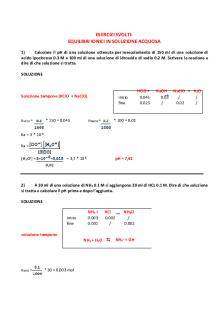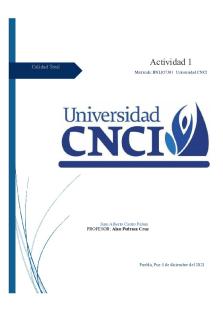8. Pace Code C, Annex G - H PDF

| Title | 8. Pace Code C, Annex G - H |
|---|---|
| Course | Criminal Litigation |
| Institution | University of Strathclyde |
| Pages | 2 |
| File Size | 82.5 KB |
| File Type | |
| Total Downloads | 75 |
| Total Views | 177 |
Summary
Download 8. Pace Code C, Annex G - H PDF
Description
Codes of practice – Code C Detention, treatment and questioning of persons by police officers
ANNEX F
Not used
ANNEX G
FITNESS TO BE INTERVIEWED
1.
This Annex contains general guidance to help police officers and healthcare professionals assess whether a detainee might be at risk in an interview.
2.
A detainee may be at risk in a interview if it is considered that:
3.
(a)
conducting the interview could significantly harm the detainee’s physical or mental state;
(b)
anything the detainee says in the interview about their involvement or suspected involvement in the offence about which they are being interviewed might be considered unreliable in subsequent court proceedings because of their physical or mental state.
In assessing whether the detainee should be interviewed, the following must be considered: (a)
how the detainee’s physical or mental state might affect their ability to understand the nature and purpose of the interview, to comprehend what is being asked and to appreciate the significance of any answers given and make rational decisions about whether they want to say anything; the extent to which the detainee’s replies may be affected by their physical or mental condition rather than representing a rational and accurate explanation of their involvement in the offence; how the nature of the interview, which could include particularly probing questions, might affect the detainee.
(b)
(c) 4.
It is essential healthcare professionals who are consulted consider the functional ability of the detainee rather than simply relying on a medical diagnosis, e.g. it is possible for a person with severe mental illness to be fit for interview.
5.
Healthcare professionals should advise on the need for an appropriate adult to be present, whether reassessment of the person’s fitness for interview may be necessary if the interview lasts beyond a specified time, and whether a further specialist opinion may be required.
6.
When healthcare professionals identify risks they should be asked to quantify the risks. They should inform the custody officer: •
whether the person’s condition: ~ ~
•
is likely to improve; will require or be amenable to treatment; and
indicate how long it may take for such improvement to take effect.
7.
The role of the healthcare professional is to consider the risks and advise the custody officer of the outcome of that consideration. The healthcare professional’s determination and any advice or recommendations should be made in writing and form part of the custody record.
8.
Once the healthcare professional has provided that information, it is a matter for the custody officer to decide whether or not to allow the interview to go ahead and if the interview is to proceed, to determine what safeguards are needed. Nothing prevents safeguards being provided in addition to those required under the Code. An example might be to have an appropriate healthcare professional present during the interview, in addition to an appropriate adult, in order constantly to monitor the person’s condition and how it is being affected by the interview.
72
Codes of practice – Code C Detention, treatment and questioning of persons by police officers
ANNEX H
DETAINED PERSON: OBSERVATION LIST
1.
If any detainee fails to meet any of the following criteria, an appropriate healthcare professional or an ambulance must be called.
2.
When assessing the level of rousability, consider: Rousability - can they be woken? •
go into the cell
•
call their name
•
shake gently
Response to questions - can they give appropriate answers to questions such as: •
What’s your name?
•
Where do you live?
•
Where do you think you are?
Response to commands - can they respond appropriately to commands such as:
3.
•
Open your eyes!
•
Lift one arm, now the other arm!
Remember to take into account the possibility or presence of other illnesses, injury, or mental condition; a person who is drowsy and smells of alcohol may also have the following: •
Diabetes
•
Epilepsy
•
Head injury
•
Drug intoxication or overdose
•
Stroke
73...
Similar Free PDFs

8. Pace Code C, Annex G - H
- 2 Pages

4. PACE Code C
- 2 Pages

cnc LAB4 g-code
- 6 Pages

H d C - quimica
- 4 Pages

DFS & BFS ( C Code)
- 4 Pages

Begin to Code with C#
- 513 Pages

Week 8 MAST-G
- 1 Pages

command and code for c++
- 4 Pages

Annex- 8 BBIT Scheme of Studies
- 98 Pages

8 Esercizi p H - Appunti 8
- 9 Pages

Práctica 8- Cuestionario H&M
- 2 Pages

PER LA PACE Perpetua
- 7 Pages
Popular Institutions
- Tinajero National High School - Annex
- Politeknik Caltex Riau
- Yokohama City University
- SGT University
- University of Al-Qadisiyah
- Divine Word College of Vigan
- Techniek College Rotterdam
- Universidade de Santiago
- Universiti Teknologi MARA Cawangan Johor Kampus Pasir Gudang
- Poltekkes Kemenkes Yogyakarta
- Baguio City National High School
- Colegio san marcos
- preparatoria uno
- Centro de Bachillerato Tecnológico Industrial y de Servicios No. 107
- Dalian Maritime University
- Quang Trung Secondary School
- Colegio Tecnológico en Informática
- Corporación Regional de Educación Superior
- Grupo CEDVA
- Dar Al Uloom University
- Centro de Estudios Preuniversitarios de la Universidad Nacional de Ingeniería
- 上智大学
- Aakash International School, Nuna Majara
- San Felipe Neri Catholic School
- Kang Chiao International School - New Taipei City
- Misamis Occidental National High School
- Institución Educativa Escuela Normal Juan Ladrilleros
- Kolehiyo ng Pantukan
- Batanes State College
- Instituto Continental
- Sekolah Menengah Kejuruan Kesehatan Kaltara (Tarakan)
- Colegio de La Inmaculada Concepcion - Cebu


![Quantization energy lab report er g g g g g g g g g g g g g g g g g g g g g g]\\](https://pdfedu.com/img/crop/172x258/og2v1qo08824.jpg)
